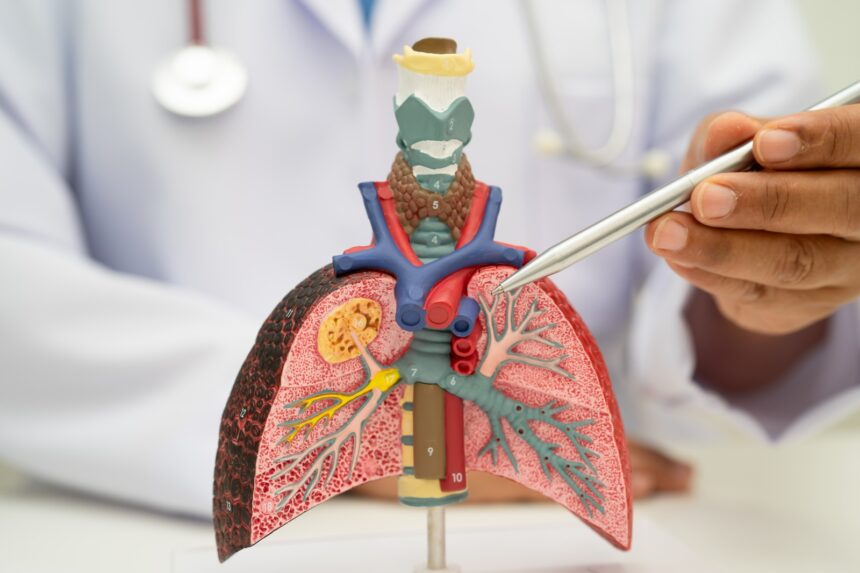In a world where clean air is no longer guaranteed, what you put on your plate may be just as important as the air you breathe. Everyday foods can equip your lungs with the defenses they need to fight back against pollution.
Introduction
Air pollution is now considered one of the leading environmental risks to health worldwide, linked to asthma, bronchitis, chronic obstructive pulmonary disease (COPD), and even cardiovascular problems.
With millions exposed to harmful particles daily, the question is no longer whether pollution affects health, but how we can build resilience against it.
While governments and organizations continue to battle emissions, individuals have their own line of defense,nutrition.
Scientists are discovering that everyday foods, rich in antioxidants and anti-inflammatory compounds, can help neutralize pollutants’ damaging effects on the lungs. Your diet may be one of the simplest, most powerful tools in protecting your respiratory system.
The Link Between Diet and Lung Health
The lungs are particularly vulnerable to pollutants like PM2.5, nitrogen dioxide, and ozone. These particles cause oxidative stress and inflammation in the respiratory system.
Antioxidants from food, however, can counteract this damage by neutralizing free radicals before they wreak havoc.
A diet high in fruits, vegetables, whole grains, and healthy fats has been linked to stronger lung capacity and slower decline in respiratory function.
Essentially, what you eat can act as a natural shield, reducing the risks of pollution-related respiratory diseases.
Foods That Protect Your Lungs
From citrus fruits to omega-3 rich fish, certain foods provide powerful antioxidants and anti-inflammatory compounds that help your lungs fight pollution and stay strong.
Citrus Fruits for Antioxidant Power
Citrus fruits like oranges, lemons, and grapefruits are packed with vitamin C, one of the most potent antioxidants for lung health. Vitamin C reduces oxidative stress and inflammation, keeping airways clear and improving the immune system’s ability to fight off infections that pollution makes more likely.
Leafy Greens for Detoxification
Spinach, kale, and Swiss chard are rich in chlorophyll and phytonutrients that aid detoxification. These greens not only help cleanse the body of toxins but also supply vitamins A and K, which support lung tissue repair and resilience.
Berries for Anti-Inflammatory Benefits
Blueberries, strawberries, and blackberries contain anthocyanins, compounds known for their anti-inflammatory properties. Regular consumption has been linked to improved lung function and reduced decline as people age.
MUST READ:Daily Habits That Support Long-Term Heart Health
Omega-3 Rich Foods for Airway Protection
Fish like salmon, mackerel, and sardines, as well as plant-based sources like flaxseeds and walnuts, are high in omega-3 fatty acids. These healthy fats calm airway inflammation and may reduce the severity of asthma symptoms aggravated by pollution.
Apples and Pears for Long-Term Protection
Studies show that regular apple consumption is associated with better lung capacity. Apples and pears are high in flavonoids and soluble fiber, both of which support respiratory function and may reduce the risk of COPD.
Practical Tips to Eat for Healthier Lungs
Simple daily food choices can go a long way in boosting your lung strength, protecting against pollution, and keeping your respiratory system resilient.
- Start your mornings with a citrus fruit smoothie.
- Add leafy greens to at least one meal a day, whether in soups, stir-fries, or salads.
- Keep berries as your go-to snack instead of processed treats.
- Swap red meat with fatty fish twice a week to boost omega-3 intake.
- Carry an apple or pear as a simple, portable lung-friendly snack.
Beyond Diet: A Holistic Approach
While eating more lung-friendly foods helps, nutrition is only one piece of the puzzle. Avoiding smoking, staying hydrated, exercising to expand lung capacity, and wearing masks in highly polluted areas all contribute to better respiratory health.
Nutrition enhances the body’s natural defense, but clean air initiatives remain vital for long-term wellness.
Final Thoughts
Air pollution is a silent but powerful enemy, affecting millions worldwide. Yet, by making mindful choices at the dining table, you can fortify your lungs against its harmful effects.
Everyday foods like citrus fruits, leafy greens, berries, and omega-3 rich sources act as shields, slowing the damage and supporting recovery. The path to breathing better may start not just with the air around you, but with the food on your plate.


